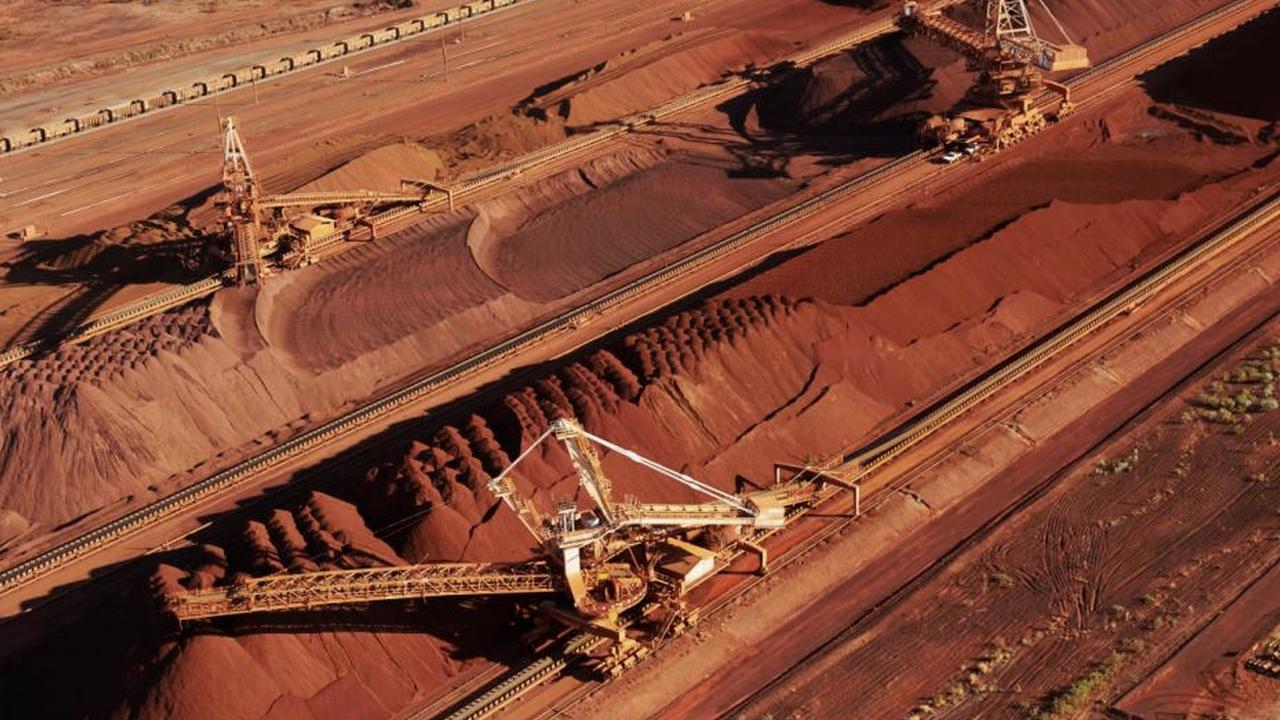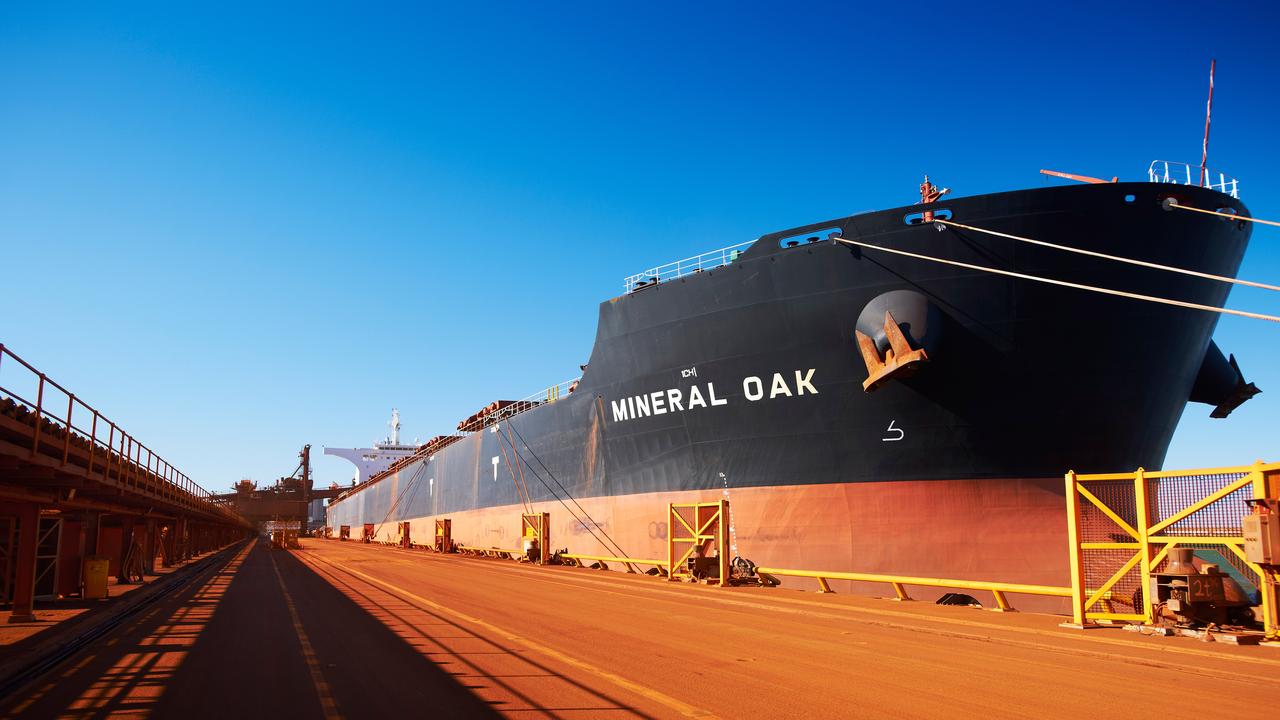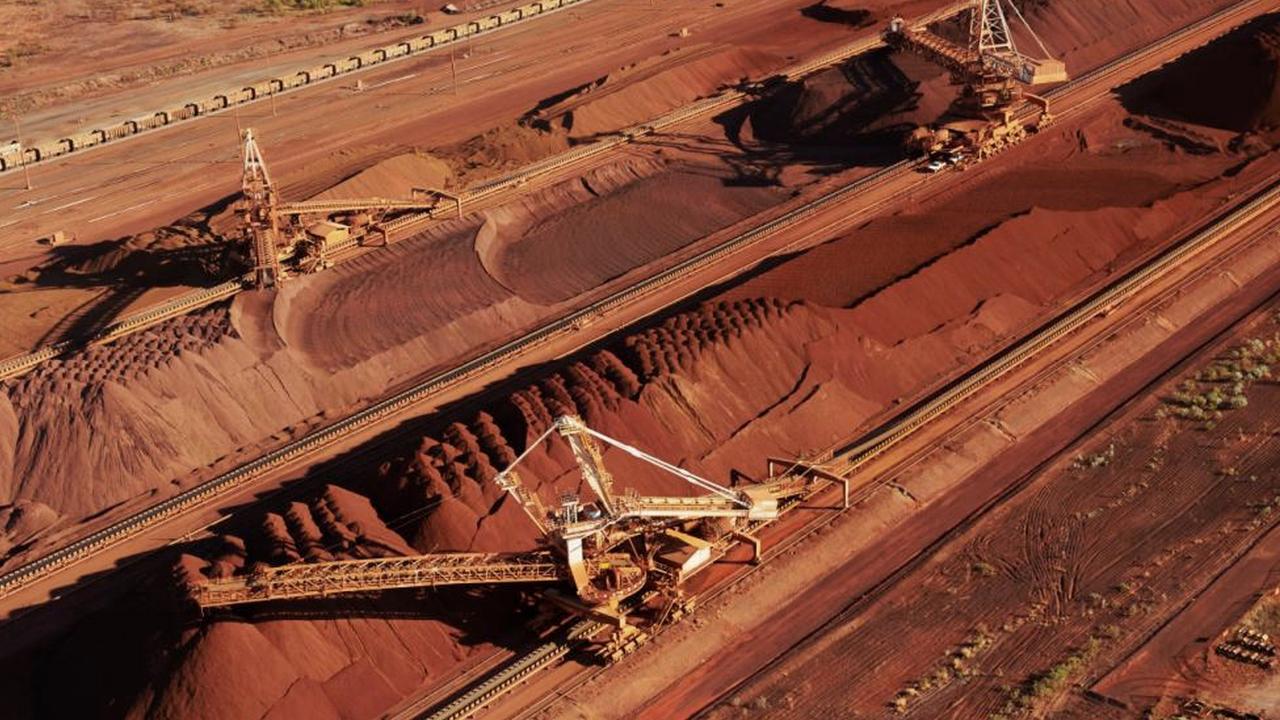BHP undergoing a revision of its strategies but dividend shower to continue
Behind an avalanche of cash and profits, BHP is undergoing a revision of its strategies and a different mining powerhouse may emerge.

Along with the strong share price BHP shareholders are going to be showered with cash later this month and the bonanza is continuing in the current financial year.
But behind that avalanche of cash and profits the Big Australian is undergoing a revision of its strategies and a different BHP may emerge in the years to come.
What will not change is BHP’s base philosophy that it is a mining company that concentrates on world class projects that can produce minerals at a cost rate that is among the lowest 25 per cent of producers. That way its projects survive any severe downturn and maximise profits in boom times.
In decades gone by, BHP was a high cost miner but there has been a revolution in its approach to costs. In the latest production report we saw that base philosophy in almost every area of its activities.
The first area of review will be oil and gas. Back in 2016 the group sold its US onshore shale oil and gas activities (at a wonderful price) and invested a big chunk of the funds in major oil drilling projects in Gulf of Mexico and in areas around Trinidad.
Some of these early massive projects are now coming on stream on budget and roughly on time. Later projects will continue to come on stream through most of the decade.
In the years after the shale sale BHP set itself up for a massive oil play in the current decade. Unlike other miners, oil would be major ongoing activity of the company — or at least that was the plan.

On the long term drawing board was the possibility that BHP might exit its Australian oil and gas interests centred around Bass Strait and the North West Shelf where in many areas it is an investor and not operator. They no longer meet the base BHP criteria.
The Gulf of Mexico and the West Indies projects meet the criteria but BHP is under all sorts of pressure from agenda driven institutions to quit all its oil interests.
I don’t think BHP will succumb to that pressure because, if it did, it would have to consider very seriously its involvement in iron ore which requires extensive carbon emissions to produce steel.
While I don’t think BHP will cave in a new potential force has emerged via the court system that is making the boards of every company involved in carbon emissions to conduct a strategy review.
In the Netherlands the courts declared that Shell had a duty of care to the next generation and required that the oil and gas giant not only reduce it’s own carbon emissions by 45 per cent by 2030 but demanded that Shell require its suppliers and customers do likewise.
Shell will appeal the decision but that appeal will take two to three years.
Meanwhile the decision is on the books. A few days later in Australia, the Federal Court’s Mr Justice Mordecai Bromberg declared that Commonwealth Environment Minister Sussan Ley had a duty to take reasonable care to avoid causing harm to children from the consequences of carbon emissions when considering an application for a coal mine expansion.
It was a similar conclusion to that in the Netherlands.
While he did not block Whitehaven Coal’s Vickery mine expansion the combination of the two “duty of care to children” court decisions is causing all global oil gas and coal producers plus their suppliers and customers to at least look at their strategies.

Expanding the production of coal, oil and gas is going to be increasingly difficult.
While there will be a reduction in usage that will take time and production restraints could keep prices high for some time which means there is potentially big profits to be made over the next decade or so. In the unlikely event the BHP decides to sell its US Gulf of Mexico and West Indies oil stakes it will send a shiver around the total world minerals community. The court decision means that the Australian government needs to take action to protect one of its major revenue bases — the minerals industry.
During the week BHP made a takeover bid for the Canadian group Noront which is owned 37 per cent by Andrew Forrest’s personal investment company. It is possible there will be a tussle between the two groups but what’s more important is what that bid tells us about BHP’s future strategy.
The Canadian company owns two potentially world class deposits — one nickel and the other chromite. Just as importantly it has fantastic leases in Canada in the so called Ring of Fire which are likely to produce other minerals. The Noront projects have the potential to be a growth area for many decades because the minerals being produced are likely to be in great demand. BHP’s bid of below $A400million is petty cash. The Andrew Forrest bid was dangerously low and it gave BHP an opening albeit BHP was very late. But there is a deeper message from Noront.
BHP is now scouring the world looking for small enterprises that have major deposits.
It seems the minerals industry may increasingly split between exploration and early development of big mines for small companies and later development to the majors. BHP is looking for more Noronts. Other large miners are adopting a similar strategy.
In its own right BHP has not been that successful in exploration but it is reviewing its exploration results over the last decade or two in the light of new technology.
If it wins Noront it needs to try and keep the Noront exploration team but BHP’s future developments are far more likely to come out of small relatively small exploration companies like Noront.
BHP’s main targets are companies with nickel copper and other minerals that will benefit from electrification. Other major miners are moving in the same direction. Its going to make it easier for small explorers to raise money because they know that while they can manage small developments If they find a major deposit the giants will buy it.
It is almost inevitable that BHP will go ahead with the Canadian potash development. It now believes with a passion that potash will be an important mineral to boost world food production in coming decades. BHP’s Canadian deposit is in the bottom quartile of costs — exactly where BHP wants to be placed.
If BHP buys Noront and develops Potash, Canada is going to be increasingly important for the group.
Of course the question hanging over BHP is how long will the iron ore boom last? Unless China slows, looks like it may go on for sometime but eventually Brazilian iron ore producer Vale will restore its production; iron ore will be produced in Africa on a large scale and scrap steel will become more important in the Chinese steel production mix.
But that’s all down track so BHP and Australia have more enjoyment ahead but BHP needs to find revenue sources to counter that inevitability.
Robert Gottliebsen, a winner of both Walkley and Australian Journalist of the Year awards, has spent more than 50 years writing and commentating about business and investment in Australia.



